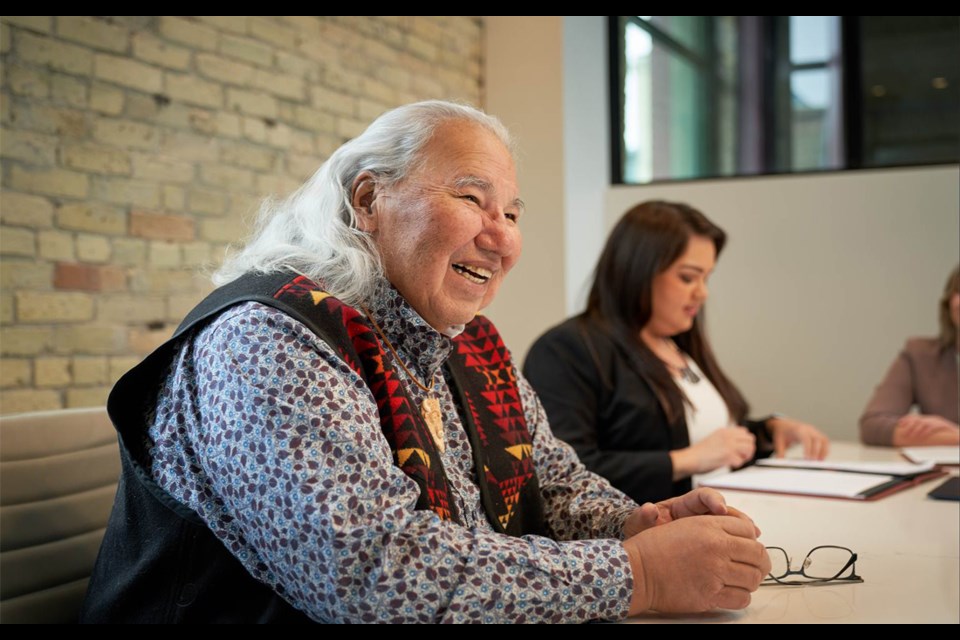The honourable Murray Sinclair, now retired from the Canadian Senate, addressed a recent meeting of the board of the Retired Teachers’ Association of Manitoba (RTAM). In Zoom attendance were representatives of the Manitoba Teachers’ Society and the Manitoba school boards. This was a unique opportunity to hear from the chair of the Truth and Reconciliation Commission about how education can contribute to the reconciliation process.
Beginning with the “truth” part of the commission, Sinclair spoke in broad terms of how the relationship between the newcomers and the Indigenous people began as one of equality. Both groups needed each other; those newcomers needed to know what plants would thrive in their fields, and which river routes were best for trading. The Indigenous peoples wanted those trade goods from Europe. It was a mutually beneficial relationship.
Eventually Canada was formed in 1867 with Ontario and Quebec, Nova Scotia, and New Brunswick. There were no Indigenous people at the table. Treaties were signed with First Nations groups, and promises were made.
By 1883, our first Prime Minister, Sir John A. Macdonald, was being quite blunt in the House of Commons. ”The Indian child should be withdrawn from their parental influence,” he said, and later used the words “central training industrial schools”.
The residential school system was being born.
Indigenous children were now to be moulded into a European-style civilization. Both churches and schools were enlisted. Canada went on to have seven generations of this devaluation of the Indigenous culture, language, society. “For seven generations. “ Mr. Sinclair said it over and over.
Going on to the “reconciliation” part of the commission, Sinclair referred briefly to the amount of time it would take to regain a balance of mutual respect. He expressed his sincere appreciation of the vital role that teachers will play.
“Education is the key to reconciliation. Education is the way that we are going to be able to influence the way our children and grandchildren will talk to each other and treat each other in the future.”
The presentation was spellbinding. It was recorded and is available for all to view at this RTAM link:
https://drive.google.com/file/d/1GvrnbywlHjEuXyaIuCcfKIzatbY2OBPg/view?usp=sharing
RTAM has become part of this reconciliation process by introducing an annual Indigenous Bursary through the University College of the North (UCN).
Three years ago it gave its first bursary to a First Nations student studying at the University College of the North. The recipient was Brie Phillips, of Creighton, Sk., then of The Pas. We had stumbled onto an assignment of hers, beautifully written. It was just before the Manitoba 150 Celebration; we decided that along with Brie we would publish this as a book and then gift it to all the libraries in Manitoba, including school libraries.
The title of this book is “ROOTS.” It is the recounting of a story told to Brie by her grandma, about how all folk and creatures belong equally on this sacred Mother Earth.
Brie had also done her own artwork. She is currently living with her twin sister, teaching from Saskatoon, waiting patiently for the COVID distancing policies to be removed so that she can actually meet her new Zoom-style students.
It is so fitting that Brie, who identifies as Métis, was able to present her first copy to Sinclair, himself a great storyteller.
He gave her a warm smile. “Do you know who will read this book? It will be the grandmothers, reading to their grandchildren.”
“When I read a good story,” he went on, “I often stop and ask questions. I get the kids to explain how they feel about a word, a phrase, or an idea.” By now they were both beaming.
“Brie, would you like to Zoom-tape me as I read your book to my grandchildren?”
“Stay in touch, OK?”
Submitted by the Public Relations Committee of the Retired Teachers’ Association of Manitoba.




